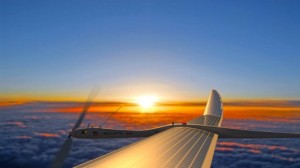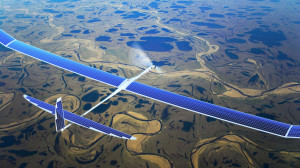Google Acquires Drone Technology
Another internet giant has made another large acquisition lately, Google has taken to the skies with its purchase of Titan Aerospace. The start-up manufacturer specialises in solar-powered Unmanned Aerial Vehicles (UAVs). Titan aerospace drones could collect and send data from the skies where Google said the company was bought to help the firm’s efforts in expanding internet access.
 Titan Aerospace, which is based in Moriarty, New Mexico, said its drones could collect real-time, high-resolution images of the earth, provide internet connections to remote areas or help monitor environmental damage like oil spills and deforestation. This particular technology would fit into Google’s Maps division but they’ll also be looking to expand its uses too.
Titan Aerospace, which is based in Moriarty, New Mexico, said its drones could collect real-time, high-resolution images of the earth, provide internet connections to remote areas or help monitor environmental damage like oil spills and deforestation. This particular technology would fit into Google’s Maps division but they’ll also be looking to expand its uses too.
Bought for an undisclosed sum, Facebook were said to be interested in purchasing the company but Google offered to outbid any offer from Mark Zuckerberg and Co. Facebook then went on to pay $20 million for Ascenta, a similar aerospace company from the UK that is also working on creating solar-powered Unmanned Aerial Vehicles.
The drones will help blanket the world in internet connectivity whereby their solar-powered energy will be able to fuel flights for up to five years, at heights of up to 19.8km above sea level, without ever touching ground. Titan Aerospace, which currently has about 20 employees, said it expects “initial commercial operations” by 2015. This is all theoretical of course; the technology is largely unproven at the moment and there are many challenges the technology faces. “The problem with solar planes is that they are limited to smaller payloads, at night you are not collecting energy from the sun and it takes a lot of power to broadcast Internet signals,” said Patrick Egan, a drone expert and an editor of sUAS News, a website covering the UAV industry.
Google has said Titan would work closely with its Project Loon, which instead of drones, high-altitude balloons send signals to areas of the world that are left offline. However Mark Zuckerberg in a white paper defended the drone technology saying users can “precisely control the location of these aircraft, unlike balloons”.
Although the technology is yet to prove itself, the potential for a widespread, naturally-powered internet service delivered from high-altitude seems large enough for both Google and Facebook to want to pursue it. Potentially millions of new customers could be reached and these companies will want to ensure they’re the first point of contact.



